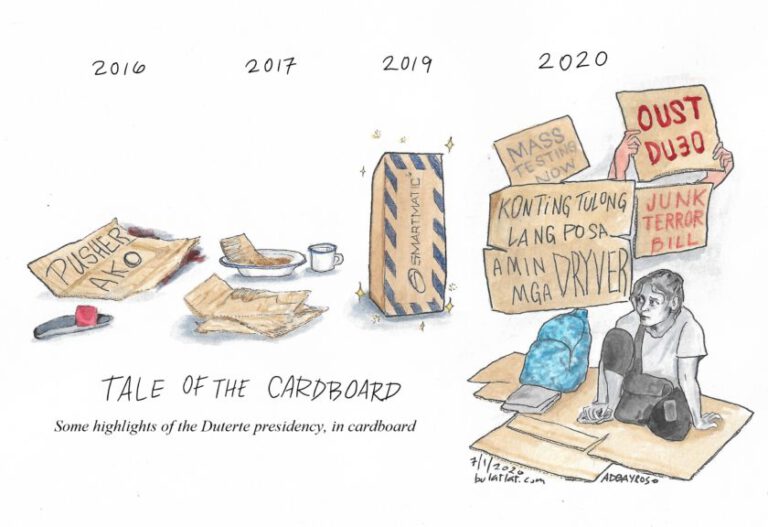I
bike-commute to work, and it is my advocacy.
I
love the adrenaline rush from packing my stuff every morning, putting them on
my pannier, changing into cycling attire, and pedaling on to work. Not a few
times, I forget to bring pocket money.
My
city is hilly, and my rides give me that much-needed oomph for my sedentary
existence. I love the clicking sound of a well-tuned gear shift as I go uphill
and my soft gasps (or grunts) as the only gauge I need for my simple machine. I
relish the downhills and tailwinds, the draft on my face as I pass between
houses and tall trees, and the unexpected drizzle on an evening ride. I always
look forward to the exhilarating feeling of freedom a bike ride brings.
Okay,
I may be romanticizing this a bit. I bike-commute in Metro Manila – a city
among the world’s top 10 in air pollution, Asia’s most crowded city, and the
worst traffic on earth. A Dutch friend once told me when he learned that I bike
in the metro that I am being suicidal. Amsterdam where he lives is the second
most bike-friendly city on the planet, next to Copenhagen. The Netherlands has
an enviable bicycle culture that makes you think their kids learned to cycle
first before they could even walk. This can only emanate from a progressive
economy and organized society, however.
Back in Metro Manila, you have to be a warrior to assert more sustainable options for mobility, including simply being a pedestrian. You have to fight for a lane, a space, a green light, a minute. And as a female cyclist, you also have to fight for a little respect. On the road, we are the lowest form of life, along with the mass of public transport commuters who struggle everyday to get to their destinations. It’s a lonely road.
Twisted
plans
The
Philippines is private car-centric. The Duterte administration’s vision paper, AmBisyon Natin 2040, imagines a future
where each family owns a private car. We will be “predominantly middle-class”
by then, government envisions, which is sadly a twisted view of development,
not to mention that government lacks imagination for a sustainable public mass
transport system.
Private
cars and those needlessly huge sports utility vehicles dominate the main
thoroughfares. In 2019, for instance, they comprised 63% of the daily volume of
EDSA. This is while the public is having the worst transport crisis.
Government’s
infrastructure ambition, Build, Build,
Build, is dominantly transport-focused but unfortunately caters to the
trading and service-oriented economy that is concentrated in Metro Manila. This
is while the country’s agricultural and industrial base is shrinking.
Metro
Manila is a chaos of shopping malls, hypermarkets, condominiums, and office
spaces for call centers and online gambling. It is bursting with real estate
development, which is hollow if we come to think how the country cannot even
produce its own steel.
Automotive
corporations, commercial banks, oil companies, and even the government are the
ones that profit from promoting private motor vehicle use. Car dealers sell
imported completely knocked-down vehicles, while banks offer auto loans at
favorable interest rates. Petroleum products are overpriced, while government
collects taxes on the pump sales. Government also earns from vehicle
registration and licensing fees.
Meanwhile,
real estate and construction oligarchs, retail giants, importers and exporters,
and foreign investors have immensely increased their wealth from infrastructure
projects that benefit their own businesses.
The
bottom line is that the push for such infrastructure and real estate
development only perpetuates private car-centricity. A sustainable mass
transport system, much less a bicycle culture, can never emanate from this kind
of development.
Bikers,
unite!
Then
COVID-19 happened. Suddenly, the government is encouraging biking as a mode of
transport around the metro to observe physical distancing. Suddenly, the
government is recognizing the economic, environmental and health benefits of
riding a bicycle, and as a solution to traffic congestion. It is strange that
it has taken a health crisis for the government to recognize the viability and
sustainability of biking.
So
here we are – we are giving the bicycle another chance. Some people are
restoring their old bicycles, while others are starting to save up for new
buys. There are also adults who have determinedly taken up riding lessons from
friends. More and more cyclists are filling the streets to go to the market, to
work, or to visit their families. Here we are – we are reclaiming that sense of
freedom.
Yet,
as with its COVID response, the government is not prepared and seems unwilling
to respond. The transportation department has only delegated the task of
sorting out this “new normal” to the local government units thus making efforts
fragmented, and worse, tokenistic. The different transport and traffic agencies
also lack cohesion on what new rules, or even what new attitude, to adopt to
really encourage biking as a transport mode and to start a process of
re-education of motorists and even pedestrians.
The
government is not prepared to accompany its promotion of the use of bicycles with
steps that would truly encourage biking in a car-centric metropolis. The
government has yet to reorient its infrastructure plan for the government
itself to internalize the principle of road-sharing with cyclists and to
promote bikers’ welfare.
For
a start, the government can designate continuous and integrated bike lanes for
a safe and efficient bike commute. It can require all establishments to provide
bike parking or may assign public spaces for such. The government can also
design foot bridges or overpasses with bike ramps for safer traverses in busy
avenues. These efforts would eventually give rise to more advanced measures
such as designation of exclusive bike roads, exclusive bike traffic rules and
signs, putting bike racks in train coaches, providing public bike-sharing as
last-mile augmentation, and the like.
Ultimately,
we should aspire for an ambitious sustainable development plan which will take
into account environmental integrity, strengthening the capacity of the public
health system, and building the country’s agricultural and industrial capacity
base. We can be a nation that manufactures its own bicycles. It will be such a
revolution.
For
a fast shift, government can start by listening to the stakeholders – the
bikers. But several bike advocates’ groups have come forward to suggest and
cooperate to make this work, only to be ignored or, worse, even fined for
interfering. The government seems to be against any type of activism at this
point.
This
is why I tell my foreign friends that you cannot simply be a cyclist in the
Philippines without being an activist – we have to fight for recognition every
single day. And now that our number is increasing, I can only parody the
revolutionary Karl Marx: “Bikers of the world unite, you have nothing to lose
but your chains!”



